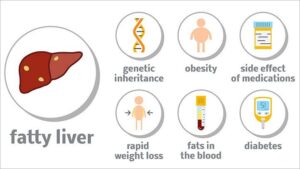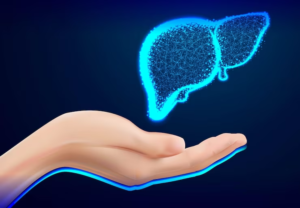
How to Stop Liver Pain Immediately: Methods of Urgent Relief
Navigating occasional discomfort or persistent pain calls for effective insights into managing liver discomfort, without overwhelming emphasis on the specific query “How to Stop Liver Pain Immediately.” This guide takes a comprehensive approach, encompassing prompt relief methods and sustainable strategies to address root causes, fostering enduring liver health.
Exploring Liver Pain Causes
Understanding the varied factors contributing to liver discomfort is crucial for effective relief. Conditions such as liver disease or hepatitis may contribute to unease. Identifying the underlying issue remains pivotal for tailoring a suitable relief plan.
Immediate Relief Techniques for Liver Pain
In instances of acute liver discomfort, swift relief is essential. Practices like deep breathing, gentle stretching, or localized heat application offer immediate comfort. These techniques provide initial respite while addressing fundamental concerns.
Dietary and Hydration Practices for Liver Health
A well-rounded diet stands as a foundation for liver health. Integrating liver-friendly foods and maintaining proper hydration support optimal organ function. Hydration’s detoxifying effects contribute to overall liver well-being.
Avoiding Harmful Substances to Alleviate Liver Discomfort
Prompt relief often involves refraining from substances exacerbating liver discomfort. Moderating or eliminating alcohol consumption and steering clear of processed or fatty foods aids in expediting relief by avoiding potential aggravators.
Rest and Posture: Allies in Liver Discomfort Management
Rest and posture play significant roles in alleviating liver discomfort. Ensuring adequate sleep and considering ergonomic adjustments reduce pressure on the liver. Sufficient rest aids the body’s natural healing processes.
Herbal Supplements and Their Role in Discomfort Reduction
Certain herbal supplements, possessing anti-inflammatory properties, can contribute to alleviating liver discomfort. Examples like milk thistle, turmeric, and dandelion root may aid in discomfort relief. Always consult with a healthcare professional before incorporating herbal supplements.
Medical Approaches for Swift Liver Discomfort Relief
In severe cases, seeking medical intervention is crucial for immediate relief. Consulting healthcare providers to explore pain management options, including prescription medications or targeted treatments for the specific liver condition, is essential.
Lifestyle Overhaul for Long-Term Well-being
Sustainable relief requires embracing long-term lifestyle changes. Regular exercise, stress management, and adherence to a friendly diet contribute to overall well-being, minimizing the risk of recurring discomfort.
Addressing Emotional Well-being in Liver Discomfort Management
In addition to physical strategies, recognizing the impact of liver discomfort on emotional well-being is crucial. Chronic discomfort can contribute to stress, anxiety, and even depression.
Integrating stress-management techniques such as mindfulness, meditation, or counseling into the relief plan can provide holistic support. By acknowledging the emotional toll and seeking appropriate avenues for support, individuals enhance their overall well-being in the face of liver discomfort.
The Role of Regular Monitoring of Your Health
While immediate relief is essential, incorporating a routine monitoring system is equally vital. Regular check-ups with healthcare professionals allow for continuous assessment of liver function, identifying any potential issues before they escalate. Monitoring liver health ensures early detection of conditions such as cirrhosis or fatty liver disease, facilitating timely interventions and preventing the recurrence of severe discomfort.
Community Support and Sharing Experiences
Navigating liver discomfort can be an isolating experience, and connecting with others who share similar challenges can provide invaluable support. Online forums, support groups, or local communities often offer platforms for individuals to share their experiences, coping strategies, and success stories.
Engaging with a supportive community fosters a sense of understanding and solidarity, helping individuals facing liver discomfort realize they are not alone. Peer support can be a powerful complement to medical interventions, creating a network of encouragement and shared insights on the road toward liver health.
Conclusion
Addressing liver discomfort demands a holistic approach, balancing immediate relief techniques with enduring lifestyle adjustments. By comprehending the causes and implementing effective strategies, individuals can find comfort and promote lasting liver health.
Always seek guidance from healthcare professionals for personalized advice tailored to individual circumstances, ensuring a balanced and well-informed approach.

